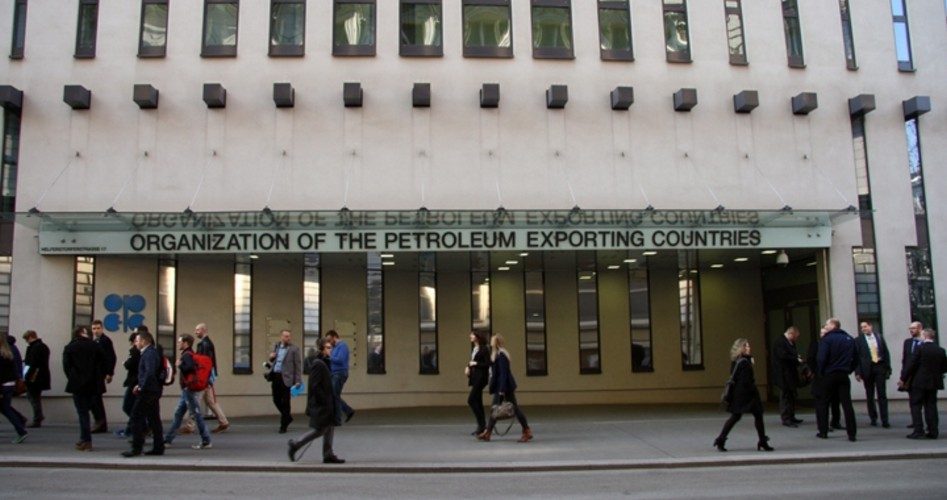
Oil ministers from the 14 oil producing countries that make up the OPEC cartel are arriving in Vienna to prepare for their formal gathering there next Wednesday. The meeting is supposed to finalize a tentative agreement reached in September that would put a cap on the cartel’s production in an effort to raise the price of a barrel of crude oil. A sufficient rise would reduce the pain currently being inflicted on those members as the decision to keep pumping in November 2014 has bitten them — some of them badly.
Saudi Arabia was forced last month to go to the international bond markets to raise capital in order to slow the liquidation of its foreign reserves. It raised $17.5 billion, barely enough to cover its deficits for the next four months. Venezuela is suffering mightily as well, not only because of low crude oil prices but because of socialist policies and political cronies running the state-owned refinery PDVSA.
Rumors abound over the size of the cuts to which the cartel might agree. At present it is pumping at maximum capacity, approaching 34 million barrels a day (mbd). Even though this represents more than 40 percent of the world’s total daily production, a cut of 4.5 percent represents only 1.5 mbd. And that’s far above the expected 1.5 to 2 percent cut, if the cartel can even agree to that.
Translation: OPEC remains in a dream world where it still thinks it can still bend the world to its wishes. There are many invisible guests at the big table in Vienna, none of them friendly to OPEC’s planned machinations.
First, it’s common knowledge that cartels don’t last. Second, OPEC’s history of cartel failure is legendary. Third, Iran, Nigeria, and Libya have already said they won’t abide by the cartel’s agreement unless they are given a special dispensation. Fourth, no one really knows for sure just how much those rogue countries are producing, so the question becomes: what percent of what amount will be cut?
The fifth invisible and unwanted visitor is Donald Trump who, in no uncertain terms, has said he wants to put America First. In his energy policy statement he said he would
Unleash America’s $50 trillion in untapped share of oil and natural gas reserves; and
Become, and stay, totally independent of any need to import energy from the OPEC cartel.
He promises to “unleash an energy revolution that will bring vast new wealth to our country.” And much of that wealth will be coming out of the hides of the members of the OPEC cartel.
Adding to the cartel’s woes is the vast new discovery of reserves in Texas that could equal, all by itself, half the total present proven reserves of the United States.
And, finally, and most disconcerting to the cartel, is the report from Brigham Exploration showing how the breakeven point for lifting one barrel of crude has dropped in the United States just since 2006. That year, the cost of producing a single BOE (barrel of oil equivalent) was $39. In 2007 it dropped to $23 a barrel. In late 2008 it dropped further to $14 while early in 2009 it fell to $13. By late 2009 it had fallen to $12 a barrel.
That was more than six years ago and it represents an average, with some wells costing more and others less. Nevertheless, it will be another uninvited guest at the table in Vienna on Wednesday. Even if those at the table come to an agreement, and even if that agreement can be enforced, and even if non-OPEC members such as Russia agree to honor it, OPEC is essentially done for. The cartel has run into the new reality, backed by irrefutable math. Its demise may be noisy but it is certain.
Photo: OPEC headquarters in Vienna
An Ivy League graduate and former investment advisor, Bob is a regular contributor to The New American magazine and blogs frequently at LightFromTheRight.com, primarily on economics and politics. He can be reached at [email protected].



